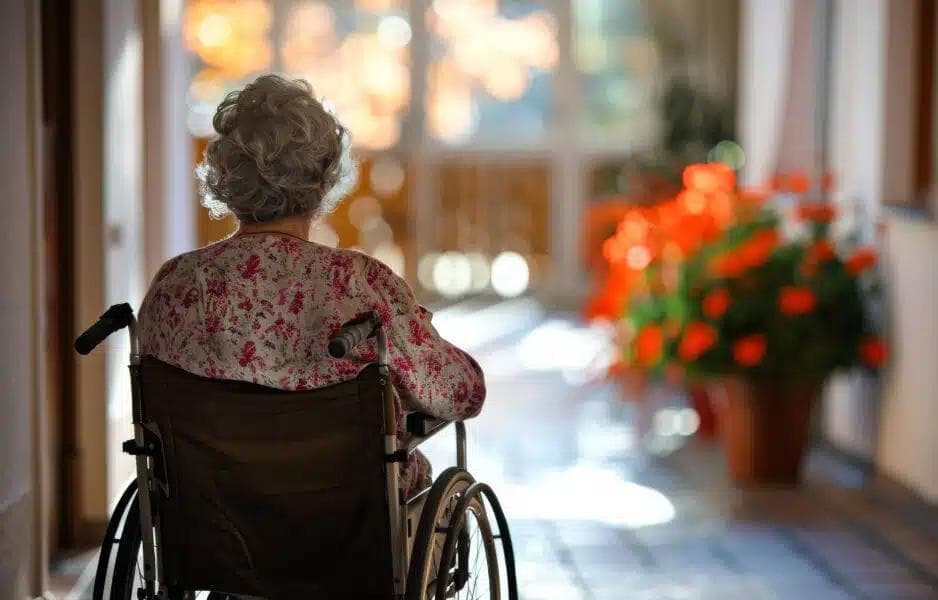
Nursing home abuse and neglect put vulnerable residents at serious risk, leading to malnutrition, dehydration, infections, and preventable injuries. When facilities fail to provide adequate care, residents suffer, and families are left feeling helpless. Lack of supervision, improper medical treatment, and unsafe conditions can result in devastating harm. Understanding the warning signs, knowing your legal rights, and holding negligent facilities accountable are crucial steps in protecting your loved ones. Learn how to take action and seek justice.
November 7, 2025
3 min
Families who place their loved ones in a nursing home expect compassion, safety, and accountability. When those expectations are betrayed, families often turn to the facility’s complaint process for answers. But what happens when those complaints are ignored, dismissed, or covered up?
In Ohio and across the U.S., nursing homes are legally required to respond to and investigate complaints made by residents and their families. Ignoring concerns about neglect, abuse, or unsafe conditions isn’t just poor practice—it’s a violation of federal and state law.
Understanding your legal rights is essential. When a facility fails to address complaints, families have powerful tools to demand accountability, protect their loved ones, and ensure that other residents don’t suffer the same harm.
Under the Nursing Home Reform Act (1987), every resident in a Medicare- or Medicaid-certified facility has the right to voice grievances about their care without fear of retaliation. This federal protection is reinforced by Ohio Administrative Code 3701-61, which requires all nursing homes in the state to establish a clear and accessible process for handling complaints.
These laws guarantee that residents and their families can:
If a facility ignores or delays addressing complaints, it’s violating both federal and state law—and may be exposing residents to continued harm.
Families often know something is wrong long before a crisis occurs. But many report that when they raise issues, their concerns are minimized or brushed aside. The most common ignored complaints include:
When a facility consistently dismisses these types of reports, it signals a systemic problem—not a misunderstanding.
Ohio law is clear: nursing homes must take every complaint seriously.
The Ohio Department of Health mandates that each licensed facility:
If these steps are skipped, the facility can face civil penalties, loss of licensure, or criminal investigation. Families also have the right to file civil lawsuits for injuries or emotional harm caused by unaddressed neglect.
Unfortunately, many facilities fail to respond appropriately because of internal problems that place profits over people. Common reasons include:
These are not excuses—they are symptoms of systemic negligence. Families have every right to demand transparency and accountability.

If your complaint has been ignored or dismissed by a nursing home, you can take several powerful steps to force action.
Keep written records of your communications with the facility, including names, dates, and responses. Take photographs of unsafe conditions or injuries.
The ODH investigates complaints of abuse, neglect, and regulatory violations in licensed nursing homes. You can file complaints online, by mail, or through their hotline.
The Ombudsman Program is an independent advocacy service that helps residents and families resolve disputes and ensures facilities comply with residents’ rights.
If you suspect abuse, neglect, or exploitation, report it to APS in your county. APS works with local authorities to investigate elder abuse cases.
When administrative complaints don’t bring change, a nursing home negligence attorney can investigate, gather evidence, and pursue compensation or injunctive relief in court.
When a facility fails to act, it may be held liable for negligence, violation of residents’ rights, or wrongful death.
Families may pursue civil claims for:
Civil action not only compensates victims but also pressures facilities to improve standards and transparency, protecting future residents.
Recognizing early warning signs can help you act before neglect escalates. Be concerned if:
In these cases, it’s essential to move beyond internal channels and report directly to regulators or legal counsel.
Attorney Michael Hill, based in Cleveland, Ohio, has built his career on holding negligent nursing homes accountable. His firm understands the emotional and legal challenges families face when their concerns are ignored.
Michael helps families by:
Michael Hill’s approach combines compassion with relentless advocacy—because every ignored complaint represents a person who deserves better care.
When a nursing home ignores your concerns, it’s not a miscommunication—it’s a violation of trust and law. Families in Ohio and across the U.S. have clear legal rights to demand action, transparency, and accountability.
Reporting and documenting issues not only protects your loved one but can prevent harm to countless others. No family should be silenced or dismissed when the safety of an elderly resident is at stake.
If your complaint to a nursing home has been ignored, Attorney Michael Hill can help you uncover the truth, hold the facility accountable, and fight for justice. With deep knowledge of Ohio and federal elder care laws, Michael ensures that families’ voices are heard—and that seniors receive the respect and protection they deserve.